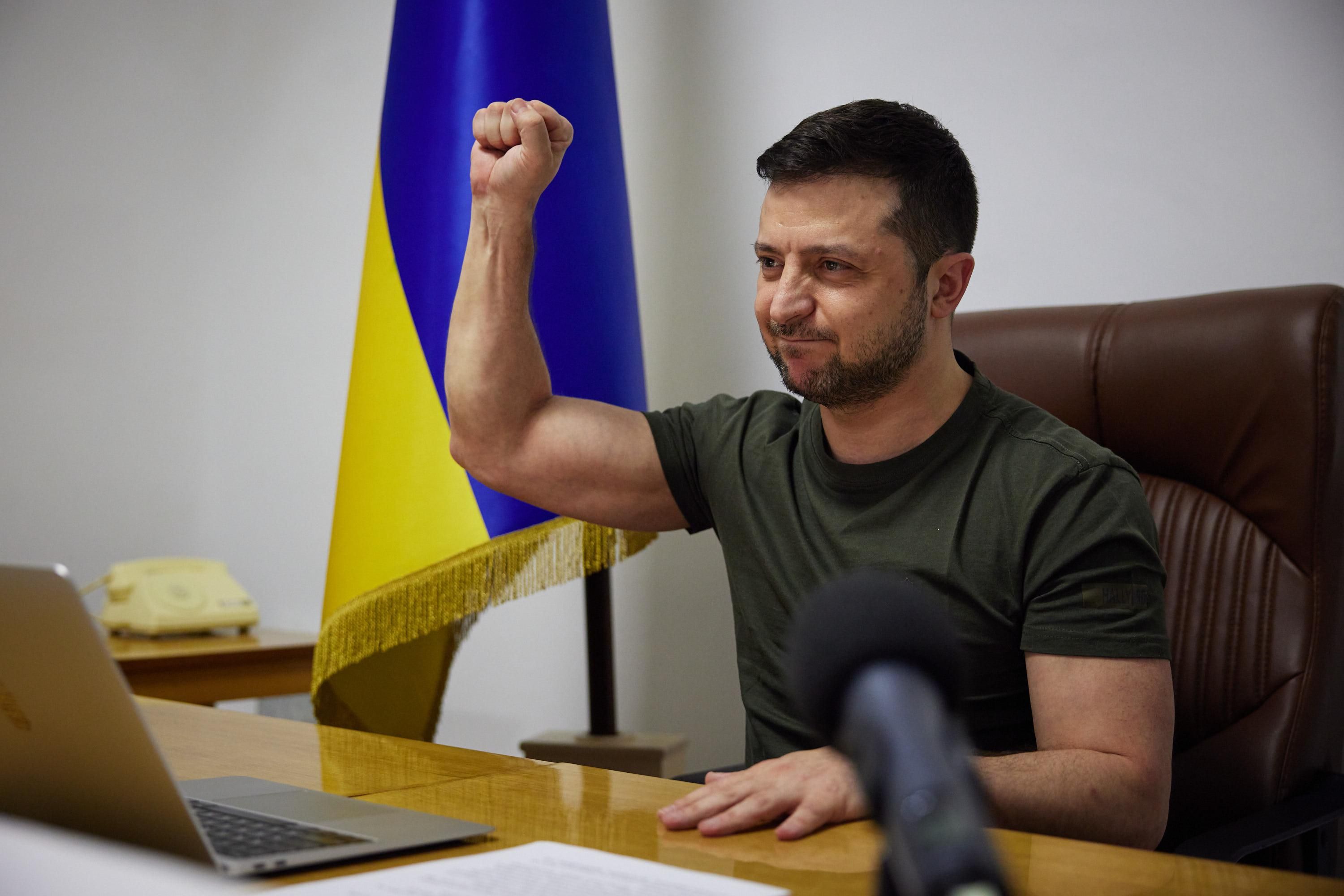On Wednesday, we’re tracking two developments that could shift the Russia-Ukraine story.
First, from Kyiv, Ukraine’s President Volodymyr Zelensky addressed a joint session of Congress on Wednesday. In his short address, Zelensky played to Americans’ sense of nationalism, history, and emotion, referencing the leaders atop Mount Rushmore as well as Martin Luther King’s “I Have a Dream” speech. “I have a dream. These words are known to each of you,” Zelensky said. “Today, I can say I have a need. I need to protect the sky.”
Zelensky again called for the US and NATO to impose a no-fly zone over Ukraine, and he also asked Congress to push for new sanctions each week to help starve the Russian war machine. His plea reportedly moved members of Congress to tears.
Last week, Congress approved nearly $14 billion to go to Ukraine, and the Biden administration is set to release $800 million on top of the $350 million in military aid they quickly sent when war broke out.
So what more can the US do? “The American people want Biden to do more,” says Jon Lieber, Eurasia Group’s lead US political analyst. “But Biden is running into the political and practical limits of what he can do.” He’s already sanctioned the Russian economy “back to the 1990s,” and the war has led to dozens of US-based businesses pulling out of Russia.
There are two things Biden has clearly stated he will not do: facilitate the transfer of Soviet-era jets from Poland to Ukraine and impose a no-fly zone, which Biden said would risk a direct military clash with Russia. In short, he’s not risking World War III.
As for a no-fly zone? “The American people agree with the president,” says Lieber, referencing a new poll showing that only 23% of Americans support the idea of imposing a no-fly zone over Ukraine (when defined as meaning that Russian planes could be shot down).
Biden’s critics have said he is letting Putin dictate the terms of US engagement in Ukraine, with Sen. Lindsay Graham accusing him of “folding like a cheap suit” over the Polish planes once they figured out that Putin would see any additional steps as an escalation.
But the US is in a bind, says Lieber. “They want to help Ukraine but are afraid of Putin, who continues to press the war in the face of near-universal international condemnation."
Second, Russia has a payment due Wednesday of $117 million in interest on two sovereign Eurobonds.
There are three more payments due this month. If the debt isn’t paid, this will mark the first sovereign default on foreign currency debt since the Bolshevik Revolution more than a century ago. (It defaulted on domestic debt in 1998.) Sanctions, which block Russian access to dollars and euros, will probably leave Russia unable to pay on Wednesday. The economic impact could last for years as Russian borrowing costs climb higher, and many of Russia’s heavily indebted largest companies are later forced into bankruptcy.
- Zelensky plea for additional Ukraine support puts US in a bind - GZERO Media ›
- Zelensky knows how to talk to the West - GZERO Media ›
- Volodymr Zelensky: TIME's 2022 Person of the Year - GZERO Media ›
- Volodymr Zelensky: TIME's 2022 Person of the Year - GZERO Media ›
- Zelensky's welcome in the West reinforces message of unity - GZERO Media ›
